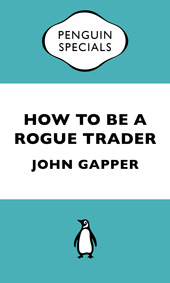For some time I’ve been writing about the healthy state of innovation in publishing thanks to digital technologies – see for example this post and this earlier one. I spotted in the newspapers very recently a couple of articles making the same point, one in The Observer and one in the New York Times, while the BBC programme Imagine this week covered the same subject. The latest trend I’ve noted is short e-books, with publishers ranging from my own dear Princeton University Press to Penguin now publishing these. This is evidence of a healthy industry, and a great contrast to the resistance of the music industry to using digital technologies to serve consumers’ preferences – maybe the newspaper industry itself could learn something from these contrasting examples?
The key lesson is not so much about being clever in using technology, though. It’s about paying attention to consumers. Technologies enable successful businesses when they are used to serve unmet demands. Diet and celebrity books dominate the best seller lists of course, but there is in these times in particular a strong appetite for understanding, for serious fiction, current affairs, debate. Faster publishing cycles, print on demand, e-book shorts, all enable publishers to respond and that’s what they’re doing.

